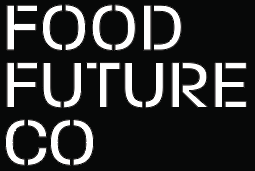Un-demo Day: Celebrating Food Future Co's Cohort 6 Graduates
by
Food Future
FoodFutureCo held a successful Un-Demo Day in June! The Cohort 6 graduates — Joy4Greens, Ouma Foods, Sons & Daughters Farm and Winery, Hire My Farmer, and MamaGaia — are already generating revenue and scaling fast. The silver lining of the virtual environment was a packed Zoom Room with investors from across the globe. The event kicked off with a fireside chat with food industry expert Marion Nestle and private equity expert Diana Propper de Callejon. You can find the recording here.
Diana Propper de Callejon, Managing Director of Cranemere, a holding company for outstanding businesses in the US and Europe, is a private equity expert with over twenty years of experience building companies that are sustainability market leaders and purpose led businesses. Marion Nestle is a pioneer in the food space, a Professor of Nutrition, Food Studies, and Public Health at NYU. She has authored several prize-winning books on food and health and actively writes about the industry on her site Food Politics. We had two very interesting and successful speakers to kick things off with a fireside chat moderated by FoodFuture partners Shen Tong and Tom Stevens. Both speakers pulled out their crystal balls and responded to a very difficult question about what the future of the food industry will look like. Nestle highlighted the billions of global citizens that are already malnourished and the health implications of this and poor choices in diet. The COVID-19 pandemic has exacerbated the problems faced by people with underlying conditions often caused by diet related issues. Nestle also highlighted how the pandemic has revealed deep flaws in the food system that have existed for decades. For example, when the food service industry had to shut down, food waste skyrocketed: we saw milk being dumped and animals being slaughtered to save space. Nestle shared her insights into the systemic flaws and failures of the for-profit food industry business model––one that has been designed around efficiency and profitability. Nestle went on to say:
“What we're seeing is the effects of a system that has no resiliency, because it's been designed primarily for efficiency in profit, and profit making companies are going to have to figure out how to continue to wait to make profits, but also to produce food, and run their enterprises more sustainably. And to build in a kind of resiliency that doesn't now exist.”
Ultimately, Nestle suggested that food companies will have to compromise on efficiency and incorporate resiliency in order to secure a sustainable future. Propper’s crystal ball saw two very real existential threats, human encroachment on the natural world and social inequality. Propper was confident that the types of companies Food Future Co is working with––companies focused on regenerative practices, sourcing local, healthy alternatives and more––are even more essential today to restoring the balance between humans and the planet that sustains us. The second existential threat mentioned was social and income inequality in a system that people are starting to rebel against on a massive scale. Propper raised a very interesting point and said:
“I tended to focus very much on the environment for the first part of my career. I have become much more focused on the social side, realizing we can't solve environmental problems if we don't solve the social and income and equity problems.”
The challenge has become not only around the environment and how the food industry’s impact on it, but also the influence of the industry on the social side such as: supply chains, employee treatment, and community engagement to name a few. Tong, FFC’s Managing Partner provided an insightful follow-up thought around the B2C business models that have been experiencing 3X and even up to 10X growth partially due to innovation, but also due to the resilience of the local food industry and its importance during times like these. FFC holds a greater proportion of investments in B2C companies and has been experiencing first hand the growth of the B2C sector. But Tong posed a difficult question, especially during times of growth: Can we do well by doing good? He was confident it’s possible and his confidence is strengthened by the growth he has witnessed in FFC’s B2C companies. Though Tong was confident, he posed the same question to Nestle and Propper and added a second part to his question, Where is the (impact investment) money? Nestle explained it is indeed possible for food companies to do well by doing good, but not at such great scale. Nestle cited Tyson Foods as one of the culprits of the “Big 4” that acts in a socially unacceptable way. As long as corporate behavior is driven by pure profit, doing well by doing good will not be possible, especially for publicly traded companies. Nestle encouraged entrepreneurs to scale carefully, make a profit, but don’t be greedy! Propper offered an alternative approach to scaling up: one that is more mission and vision driven. Cranemere, where Propper is a Managing Director, looks at scale and growth from a more long term perspective. Furthermore, at Cranemere, they believe by being the best environmental and social performer you will out compete your peers over the long term. Propper shared final piece of advice about deciding who to partner with:
“Make sure that who you marry now is aligned with your [values], mission, and what you're trying to build; how they are going to act when times get tough[?]”
This type of investor might not offer the best valuation, but the relationship will prove more valuable in the long run. Nestle, Propper and Tong offered closing thoughts and reminded us that entrepreneurship is a marathon and that successes don’t happen overnight. Wise words from an inspiring group of individuals making great strides in the food industry.


